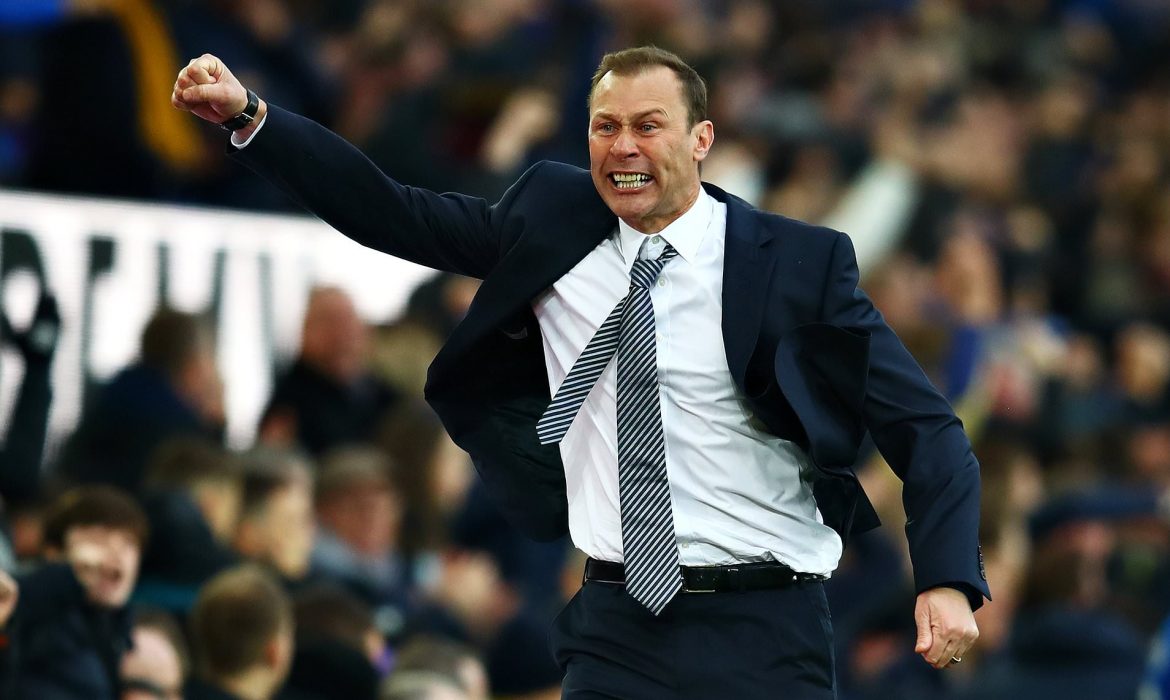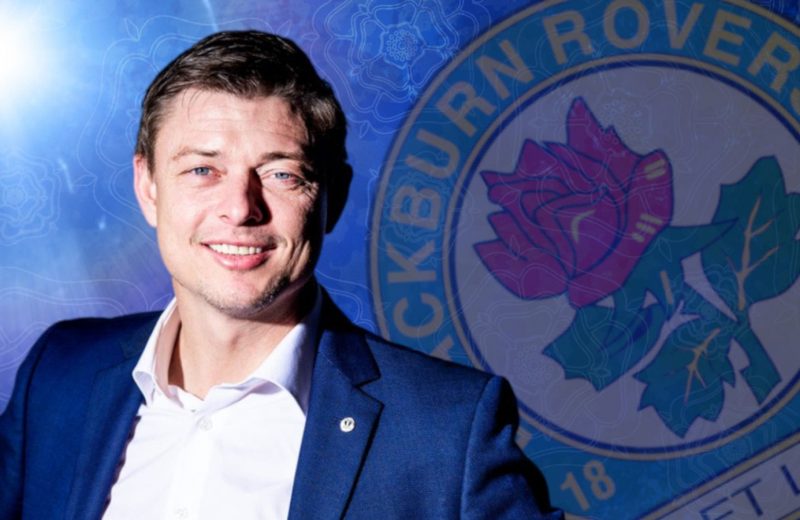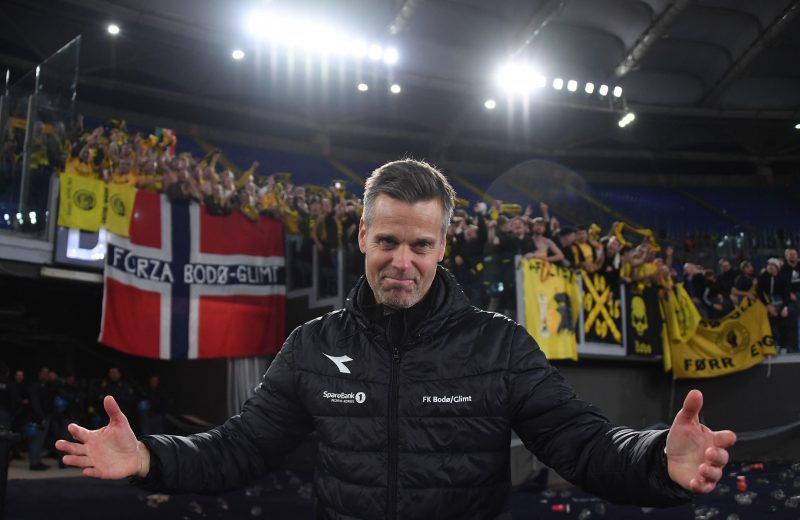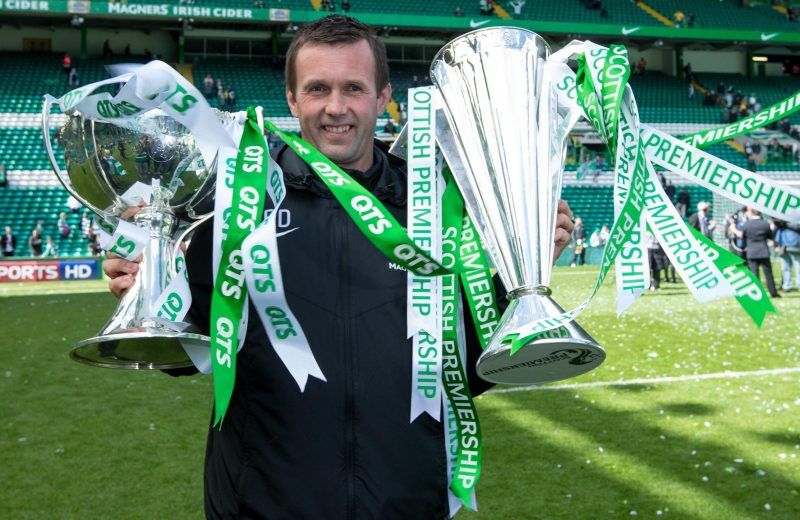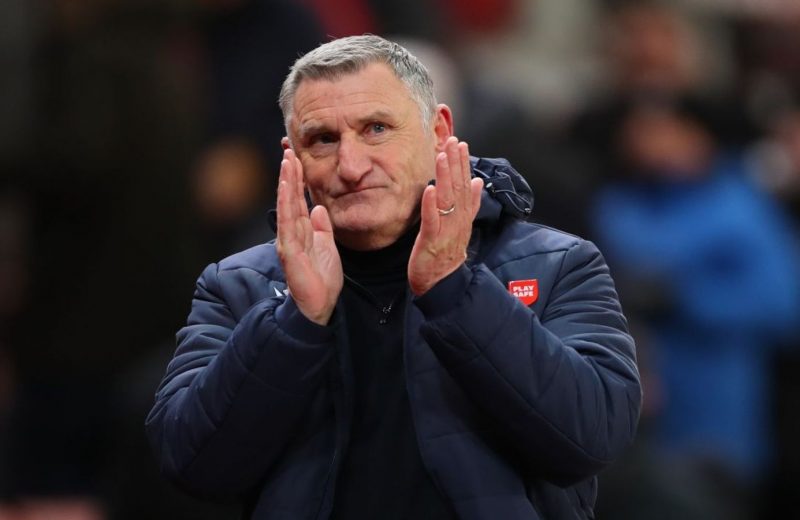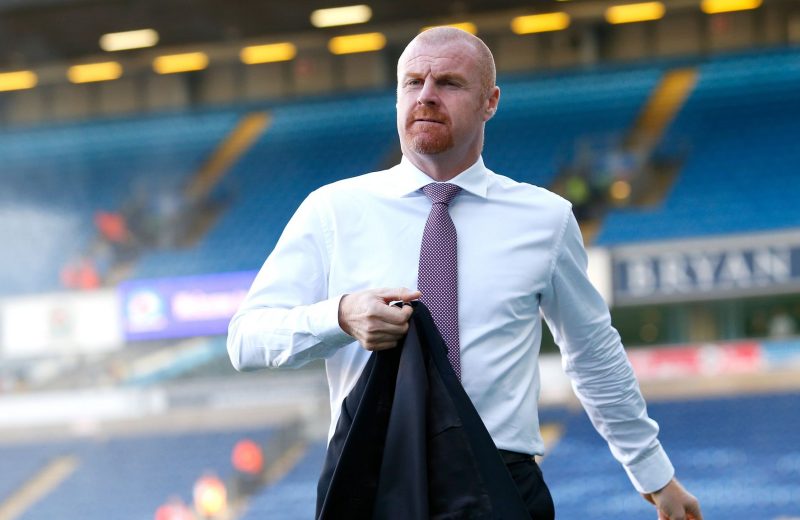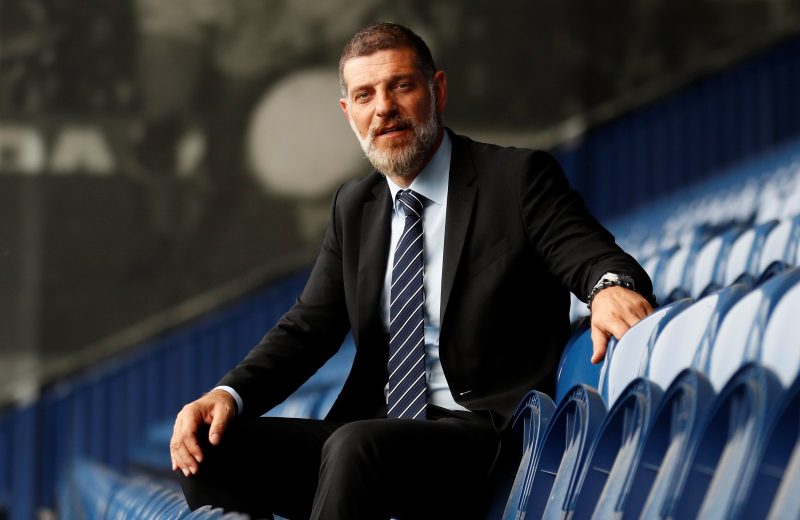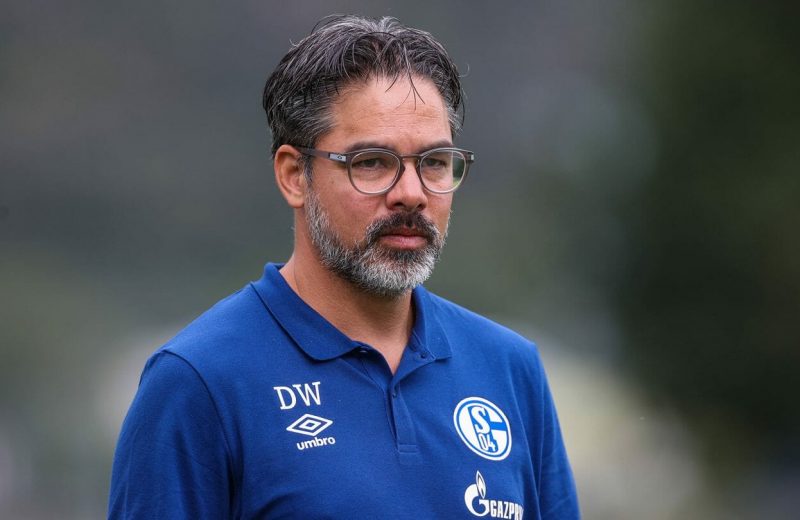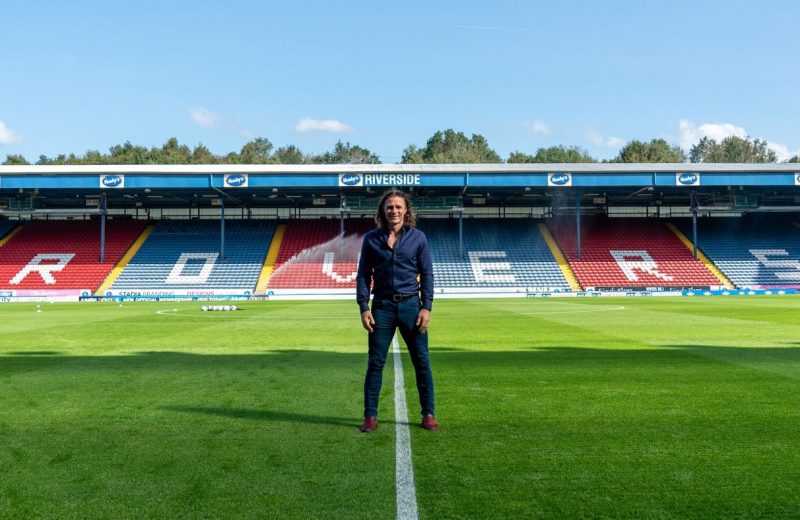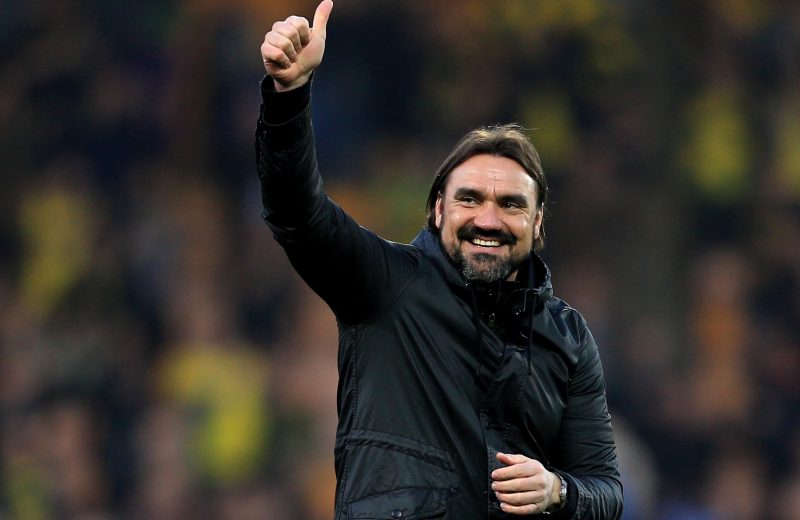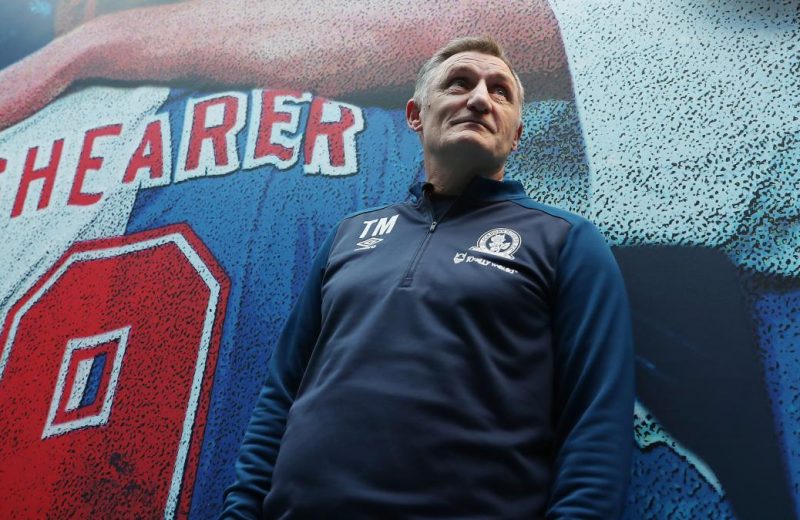Speculation has been rife since Tony Mowbray’s departure from Rovers was announced, about who would be his successor. The five-year spell that Mowbray had at the helm of Rovers is rather unprecedented in modern Championship football, but it’s time to move on.
Names have been thrown around about who would slot into the managerial hotseat, from ‘inexperienced first-time’ managers looking to break through into the merry-go-round, to ‘high-profile’ journeymen looking to ‘pursue new challenges’.
Over the next six days, we shall be teaming the current Rovers squad up with potential incoming gaffers to see how they would fair under the rigorous and demanding pressure of managing former Premier League Champions.
“But how are you going to do that?”, I can hear you ask?
Well, Football Manager will be our tool for making fantasy, a reality, as we take ‘the world’s most accurate simulator’ out for a spin to see who which gaffer will get closest to bringing the Premier League back to Ewood Park.
What is Football Manager?
For those of you unfamiliar with Football Manager – ‘FM’ as it is commonly known as – is seen by many as the ‘crème de la crème’ of football simulators. In fact, it’s probably taken up half of my life!
Described by the game’s production studio, Sports Interactive, as ‘a living, breathing game world of unparalleled realism’, the simulator has certainly received worthy plaudits as it has expanded to all corners of the globe and has developed pinpoint accuracy in scouting and tactical breakdowns, including the fact it is backed by over 1,300 real scouts who help determine the game’s accuracy and ‘football authenticity that other football games can only aspire to replicate.’
In fact, it’s revered around the footballing world and has influenced both supporters and football clubs alike in how they think about the ‘beautiful game’. In 2008, whilst still in the Everton dugout, David Moyes agreed a deal to use the Football Manager database for scouting players and opponents. It has also helped many young aspiring managers achieve their dreams, such as Lancastrian, Shadab Iftikhar whose exploits on Football Manager inspired him to work towards his UEFA Coaching Badges, eventually leading him to becoming a Scout for Belgium during UEFA Euro 2020, before becoming the first-team manager at Fort William in the fifth tier of Scottish Football.
Furthermore, it has become a cult outlet of technology among current active players and managers, with former Manchester United manager, Ole Gunnar Solskjaer, back in 2014, stating that he ‘learnt a lot’ from playing FM, whilst former Rangers and Scotland manager, Alex McLeish stated that: ‘I’d imagine that any manager worth his salt would be using it (Football Manager) to scout players and opponents.’
French World Cup Winner, Antoine Griezmann has also been engrossed in the game, with the on-loan Atlético Madrid man detailing many of his successes online, including his spell as Newcastle United boss on the 2021 iteration of the game, where he became – in his words – ‘an English football legend’.
Just like the sport we all know and love, it really is ‘more than just a game’.
How are we going to break this down?
It’s important to note that this series will be written following Sunday 29th May’s Championship Playoff final, which saw Nottingham Forest beat Huddersfield Town, 1-0 at Wembley. From this point on, we will be implementing the 2022-23 campaign, from this date, meaning that any future transfers or managerial appointments that might happen in June or beyond will not be accounted for.
Furthermore, the game will determine everything that occurs during a campaign; it will fill current vacancies within the Championship and ones that may occur over the course of the simulation. The squads that we shall be using will be accurate as of 29th May 2022 and transfers that happen from 30th May onwards, will not be included, unless they have already been confirmed. This means that we are as close to current reality as possible.
Of course, you’ll notice in the screenshots that the dates are from 2021-22 and exclude the upcoming World Cup in December 2022; that unfortunately can’t be changed, but it’s irrelevant to the conclusion we’re making. Just imagine the dates are 2022-23 instead! For the sake of Darragh Lenihan and Ryan Nyambe; they will remain at the club with their deal expiring at the end of the experiment’s season, given their future is unknown.
Sadly, I can’t predict the future – if I could, I’d tell you when we’d get promoted(!) – so giving them a standard one-year extension seems the most sensible option.
Throughout this series, we shall place a candidate (and members of his backroom staff from his last club where applicable) in the Rovers role, and see how his season unfolds, detailing the manager’s transfers, results, whether they lasted the entire campaign and most importantly, where they finished in the league. The personnel that we select will loosely be based off SkyBet’s odds, which will undoubtedly fluctuate over the course of creating and publishing this series; we’ll also be including a couple of our own picks, including one that might cause uproar.
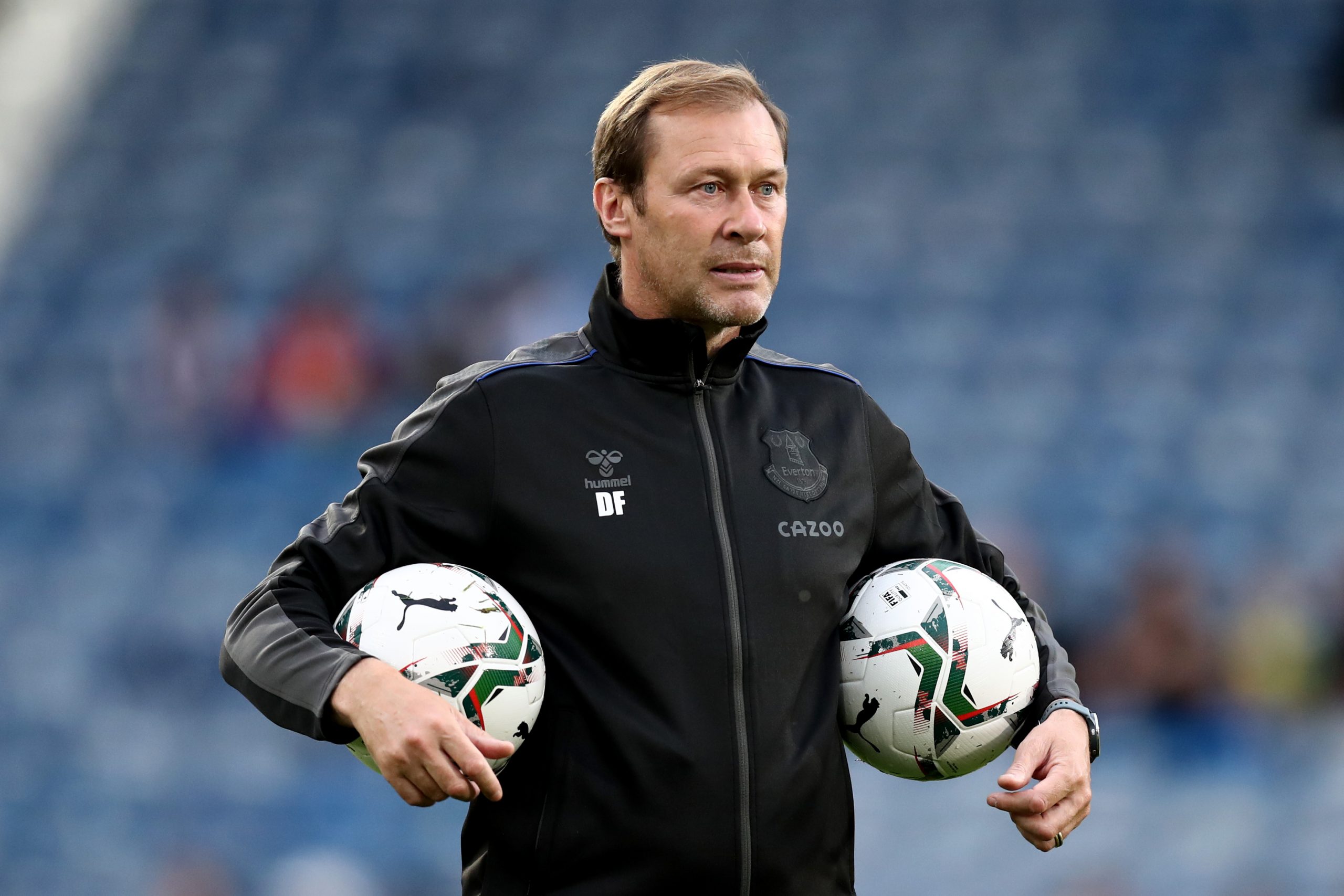
Duncan Ferguson
Thursday’s focus will be on current Everton assistant manager Duncan Ferguson, who is – as of writing – evens (1/1) in the odds to take up the vacancy at Ewood Park, according to SkyBet. Although many sources close to the Goodison Park legend, including Merseyside newspapers have denied that Ferguson has even been in contact with Rovers, there has been a vehement split between the fanbase which makes this simulation even more interesting.
Brief Career So Far
Known throughout his playing days as a ferocious character who knew where the back of the net was, Duncan Ferguson was like marmite for those not affiliated with the sides that he played for. Despite netting over 100 goals in a career that spanned across the top tiers of England and Scotland, Ferguson mainly became known for his fiery temper and his collection of bookings, which led to him becoming the joint-most red-carded player in Premier League history, with eight, alongside former Arsenal captain and current Crystal Palace boss, Patrick Vieira.
Ferguson is perhaps best known for his spell at Everton, where he won an FA Cup and helped the Toffees qualify for the qualifying rounds of the UEFA Champions League. Despite netting 68 goals for Everton over two separate prolonged spells, Ferguson did have two rather underwhelming spells either side of his Everton days, first at Rangers prior to arriving at Goodison and at Newcastle United, under Dutch legend, Ruud Gullit from 1998-2000.
The former Dundee United forward has been touted to move out the shadows of being a #2 for numerous years now and has had the odd occasion at Everton to prove his worth. After becoming a first-team coach at Everton in 2014, Ferguson briefly stepped into the hotseat in December 2019 as he was tasked to turn Everton’s poor form around, following the sacking of Portuguese, Marco Silva. Ferguson impressed on his managerial debut, as Everton beat Chelsea, 3-1, to move out of the relegation zone. Ferguson would end his first interim spell unbeaten with a win and three draws from his four games.
After Champions League winners, Carlo Ancelotti and Rafa Benítez successively took the role as Everton boss, Ferguson remained on their coaching staff, but again took the main role, when the former Liverpool boss was sacked. The Scot would only manage one game as Everton again looked to steer clear of relegation, but lost to Steven Gerrard’s Aston Villa, 1-0. Since the appointment of Frank Lampard as Everton boss, Ferguson remains as part of the former Chelsea midfielder’s staff.
How does Football Manager think he’ll do?
We placed ‘Big Dunc’ into the Ewood Park dugout and tracked his time at Rovers to see how he stacks against the two previous candidates.
It’s fair to say that, given Duncan Ferguson is yet to take a managerial job full-time, his backroom staff or elements of it, are currently unknown; resultantly, the Scot came in by himself into the set-up left behind by Tony Mowbray and linked up with the current staff, but refused to hire an assistant manager, in a rather strange move, relying on the incumbent duo of Damien Johnson and David Lowe for assistance.
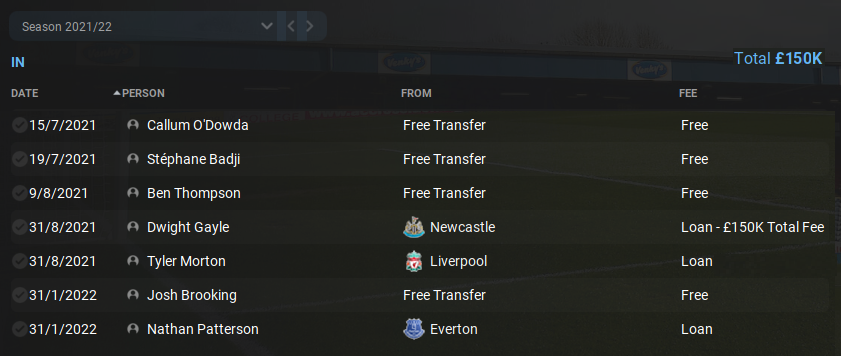
Ferguson’s signings showed that he was utilising the connections that he had built over the course of his playing career as he picked up youngsters from both halves of Merseyside and a Championship hot-shot from his former side, Newcastle United. From the Blue side of Merseyside came former Rangers right-back, Nathan Patterson, who Ferguson had coached after Rafa Benítez brought the defender in during his brief spell at Goodison. After pinching a defender from his beloved Toffees, Ferguson one-mile journey over to Anfield to scoop the teenage talent, Tyler Morton – who made his Champions League debut, this year, in real life for the Reds.
Dwight Gayle’s addition was an eye-opener following the end of the simulation, and a move that rather impressed me. Ferguson managed to convince the Toon forward to make the trip down the A1(M) after he had fallen out of favour with the Saudi-Arabian-owned club. Rather curiously, most of – if not all – of Ferguson’s budget was spent on Gayle, as the loan fee of £150,000 and wage contribution of £10,500 per week – from the £35,000 he was on at Newcastle – made the attacker one of the highest earners at the club.
The rest of the incomings ended up being freebies, as Ferguson followed in the earlier footsteps of Daniel Farke, by snapping up experienced winger, Callum O’Dowda. Defensive midfielder, Ben Thompson was also hauled into Ewood, after the 26-year-old was released from Millwall, however after only two starts and nine substitute appearances – including a goal – Thompson decided not to renew his initial one-year-deal and is set to leave on a free come July. Josh Brooking was signed after his release from Chelsea, but his future was with the under-23s side, rather than the first-team. The final signing of Stéphane Badji was the most intriguing, as Ferguson clearly took initiative to strengthen the centre of his midfield with the experienced 32-year-old, who was formerly of Anderlecht, joining on a free.


As with Gareth Ainsworth’s run as the Ewood chief, the outgoings mainly focussed on finding first-team football for the talented youth that Rovers had brewing through the ranks, with Sam Burns, Dan Pike and Dilan Markanday all temporarily moving on to improve their development.
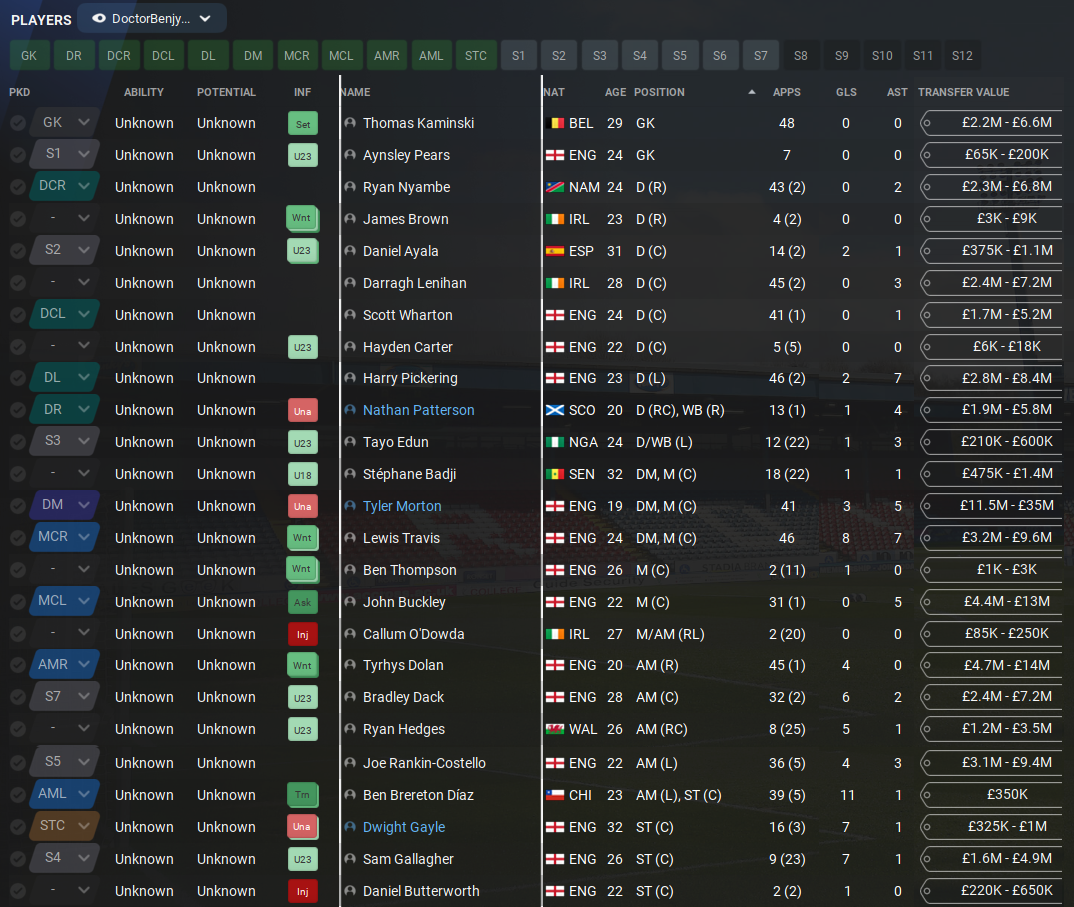
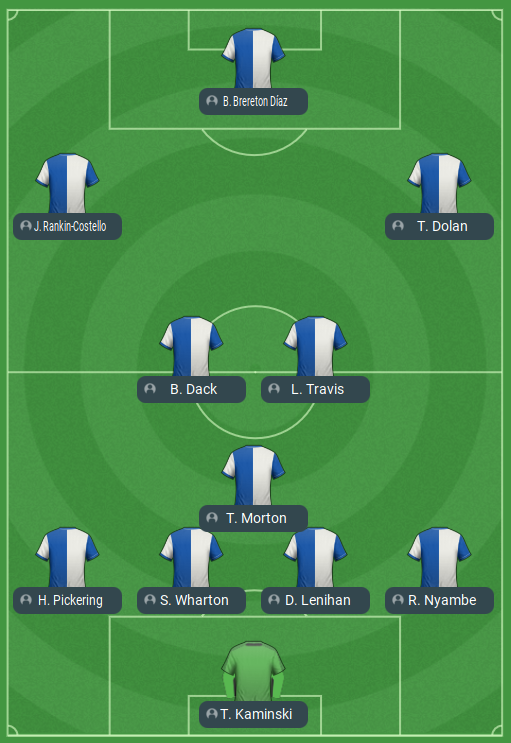
The depth within the Rovers squad was exactly what was required for such a long season; however Duncan Ferguson’s persuasion skills came of great use when trying to secure new deals for his out-of-contract players as Ryan Nyambe put pen-to-paper in January to extend his stay at the club by three-years. The Scot didn’t have much luck with Chilean attacker, Ben Brereton Díaz, however, who rejected all advances – and was transfer listed in December, despite remaining in the first-team – in order to head to mainland Europe and ply his trade in the Bundesliga for Hoffenheim, upon the expiry of his Rovers contract, as seen above.
Whilst the system that Ferguson chose is increasingly familiar in modern football, with many top clubs utilising it, the inclusion of Joe Rankin-Costello as a left-attacking-midfielder/winger was quite surprising, with the former Everton forward clearly opting for work-rate down his left-hand side, rather than the technical ability of Ryan Hedges, Callum O’Dowda who was restricted to a bit-part role, Sam Gallagher off the left, as a wide-target-man or even Brereton Díaz. John Buckley has been a regular over the past two days, but found himself underused in comparison to Tony Mowbray, Daniel Farke and Gareth Ainsworth’s respective reigns.
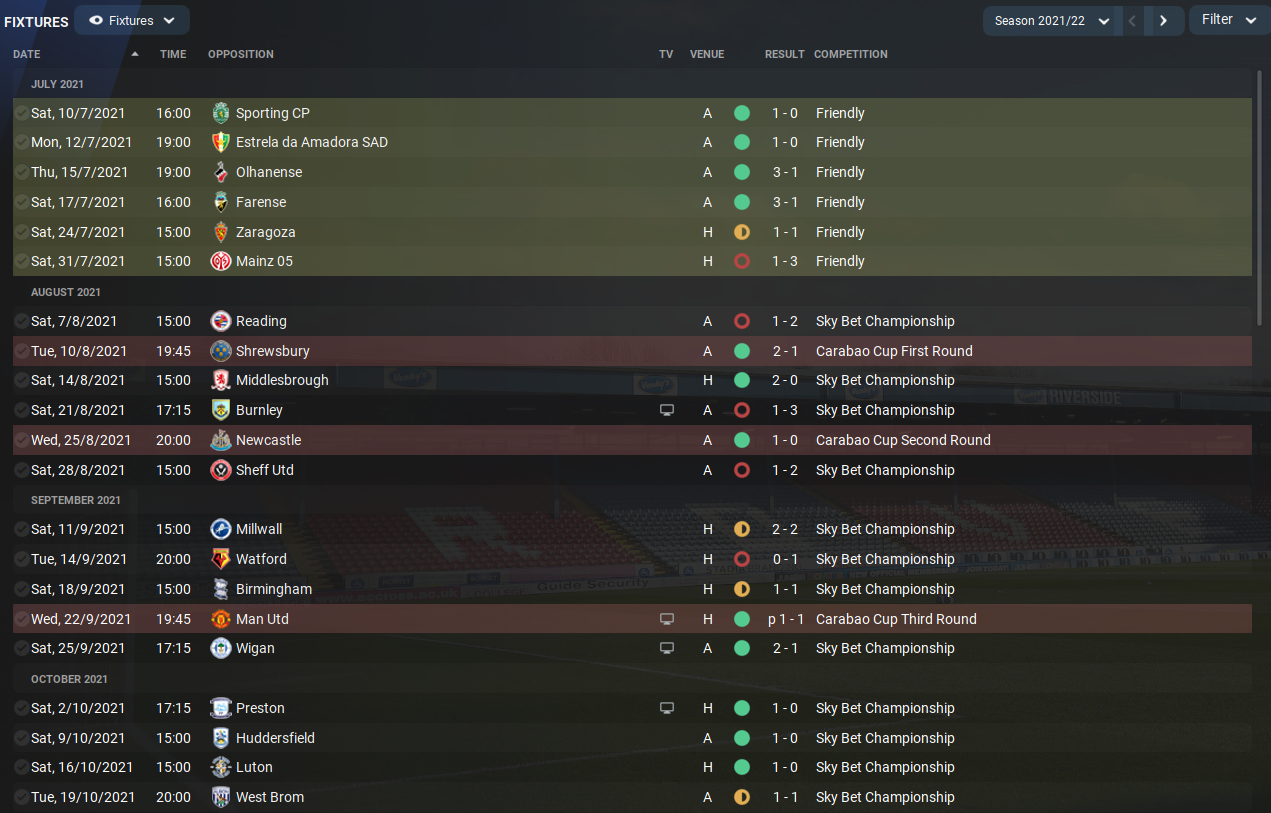
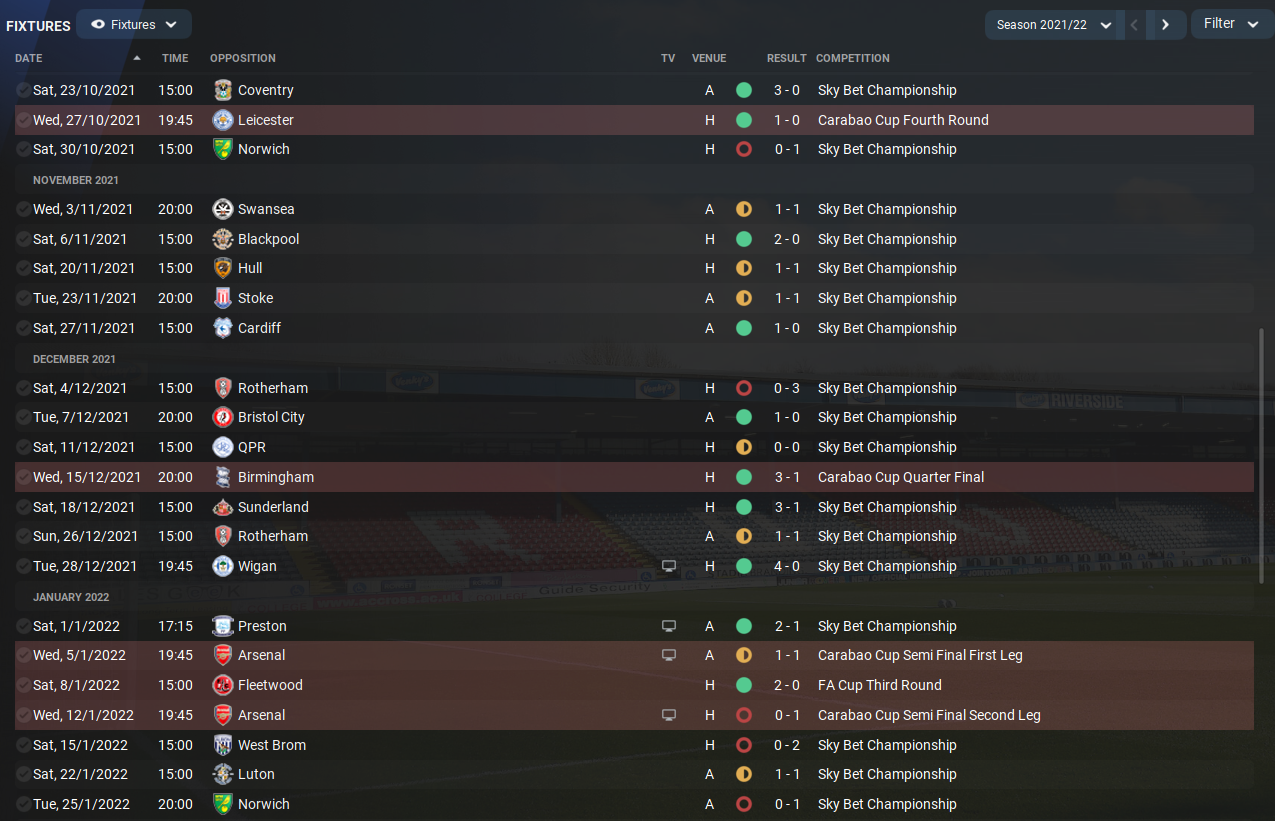
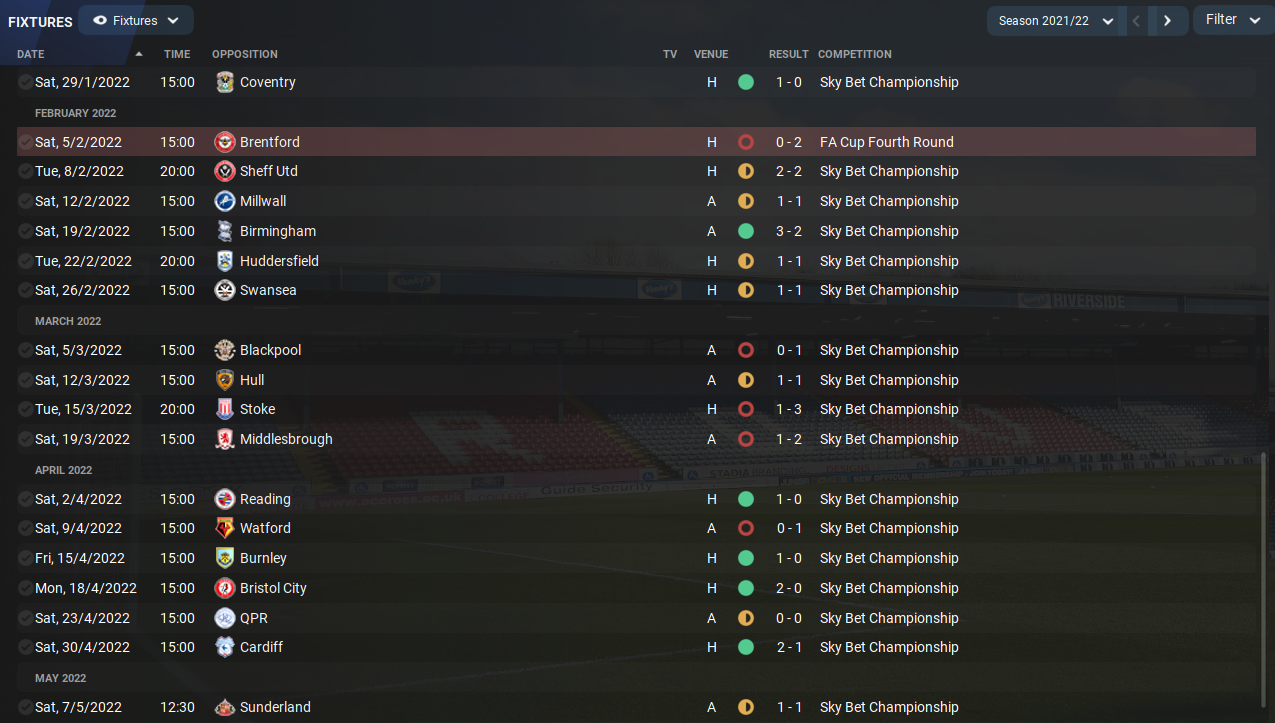
One aspect that immediately jumps out from Ferguson’s reign is that he became the first of the three managers, thus far, to beat Burnley, which surely earns him some brownie points. Confectionary aside, the overall campaign under the Scot was littered with inconsistent patches, in contrast to Tuesday’s simulation. Rovers under Ferguson seemed very ‘stop-start’ during the early weeks of the season as they only picked up four points from a possible 18, however a surge in form towards the end of September saw Rovers begin to flex their muscles.
Although Rovers looked as if they had hit form at the right time, as their good fortunes continued into the New Year, despite the off-pitch issues with their Chilean forward, things came crashing down in March, as they failed to win against eventual mid-table finishers Blackpool and Stoke City, as well as relegation-surviving Hull City and Middlesbrough, which ultimately would come back to haunt them.
Ferguson did become the first manager to have a semi-successful cup run, as the 50-year-old guided Rovers through Shewsbury Town in the Carabao Cup First Round, before back-to-back over Uniteds, Newcastle and Manchester, with the latter being via the spot-kicks. After the Third Round win kickstarted Rovers’ campaign, they would go on to get the better of another Premier League side in Leicester City, before beating fellow Championship side, Birmingham City on penalties, to set up Rovers’ first League Cup Semi-Final since 2009-10, where they came out of the wrong end of a thrilling 7-4 tie versus Aston Villa. Sadly, for Rovers and Ferguson, they fell short of their trip to Wembley as Arsenal got the better of them over two-legs, winning 2-1 on aggregate.
The FA Cup wasn’t nearly as dramatic as Rovers fell in their second game against Premier League Brentford in the Fourth Round, after brushing aside Third Tier, Fleetwood Town in Round Three.
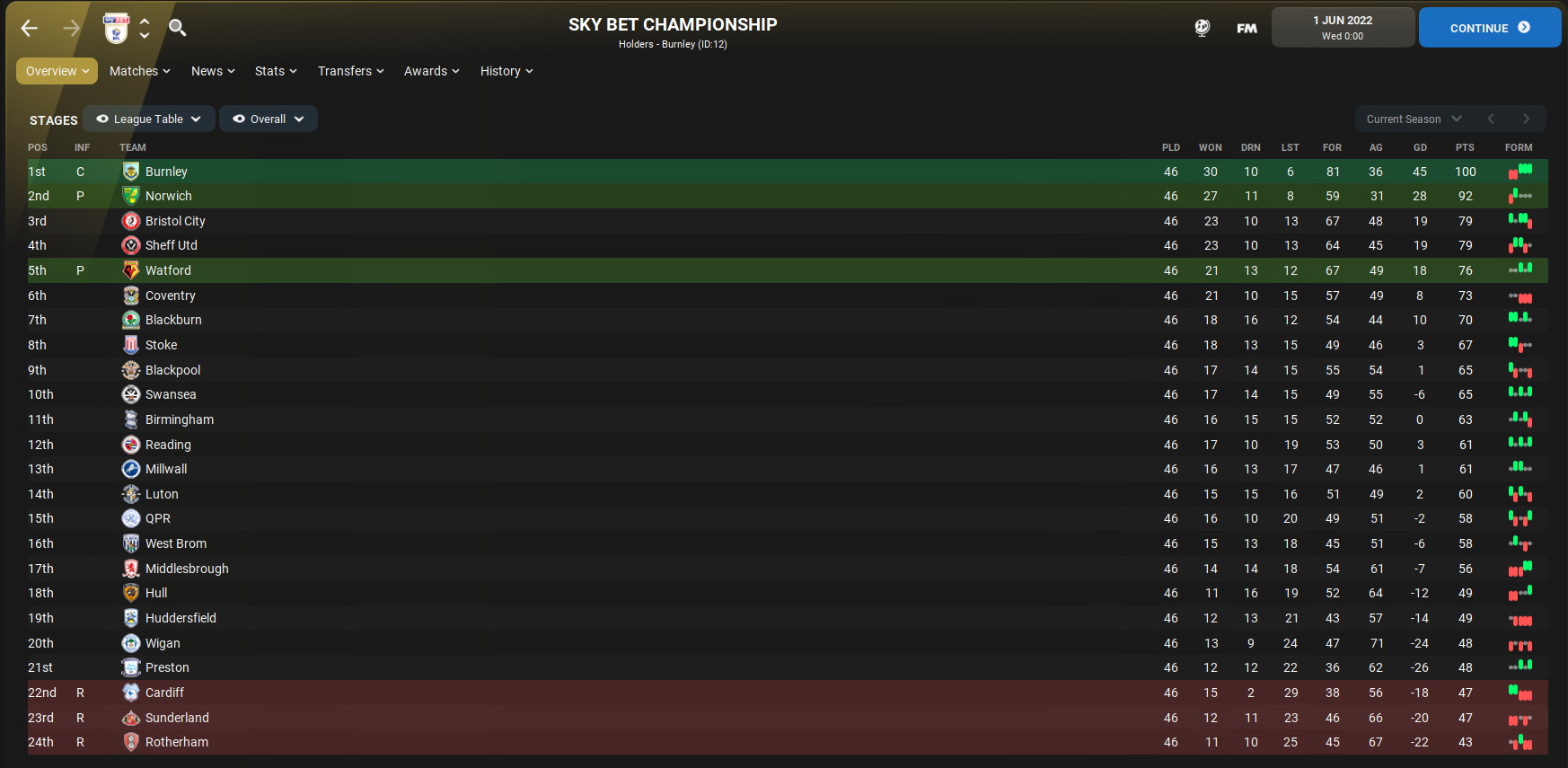
Duncan Ferguson’s miserable March ultimately came back to haunt him as he became the first Rovers manager in this simulation to fall short of the playoffs, missing out on extending his season, by three points as Coventry City pipped them to 6th.
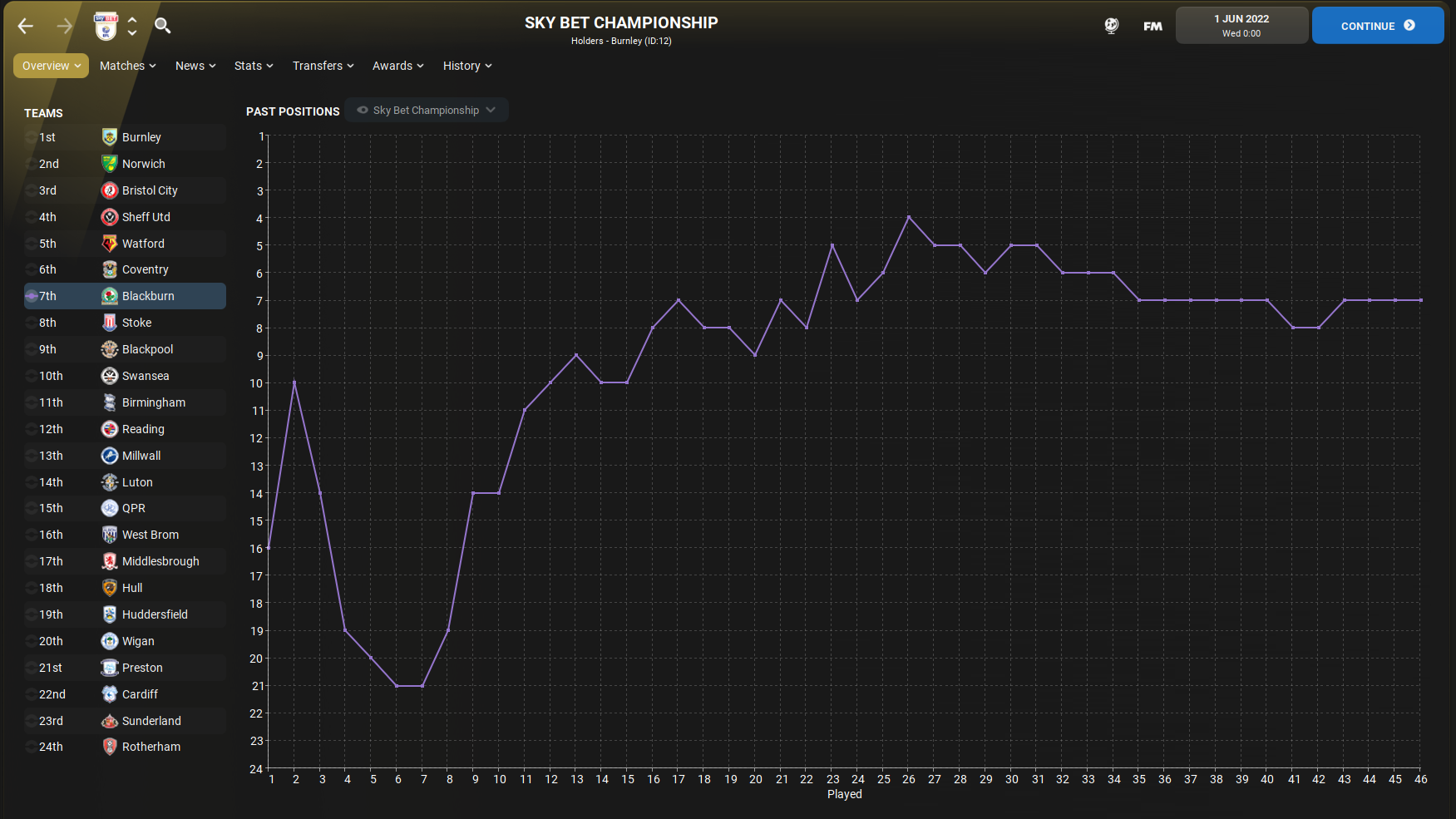
The graph allows one to pinpoint exactly where Rovers’ fortunes turned and how difficult it was for them to maintain a place in the playoffs come the tail-end of the campaign. Despite spending 12 consecutive gameweeks inside the top-six, their sub-standard form in the second-half of the year ultimately saw them throw away the chance of gaining a route back into England’s top-tier…sounds familiar, right? Too many draws proved costly for Rovers as they finished joint-highest in the division with 16, despite having the third-best defensive record, behind the top-two, with only 44 goals conceded in the league. Missing out on the playoffs due to too many draws? This sounds eerily familiar to another coach-turned-manager from yesteryear…
Overall, it’s pretty fair to say that ‘Big Dunc’ had a rather prospective stint in the Rovers dugout and probably overperformed the expectations that many of us would expect him to achieve, if he came into the club in real life. Whilst he does lack the experience at being the ‘top dog’, he has worked under some of the most astute and successful managers of the last 30-years and has proven that, not only is he capable of going toe-to-toe with some of the best in the Premier League, but he has the passion that we have been screaming out for.
With the Scots odds now at 11/10 – (that isn’t a mistake from earlier, when I said he was evens, they’ve moved over the course of Tuesday afternoon/evening!) – and rumours still rife about who could come into Rovers, as candidates seemingly slip through the rather wide sieve, an ‘ace in the pack’ appointment could be what Rovers need to galvanise and get the best out of the young squad we currently possess.
How high does Duncan Ferguson rank among your managerial selections?
Let me know below, or on Twitter: @readrovers
Thank you for reading! Make sure to return tomorrow at 6pm to see how the fourth manager does.
COYB! ?⚪
Zeid


